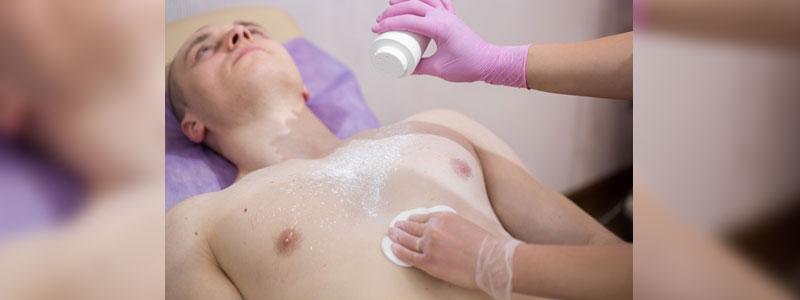J&J Appeals To Mo. Supreme Court Over $2.1B Talc Verdict

Last Wednesday, Johnson & Johnson (J&J) filed an application for transfer asking the Missouri Supreme Court to reverse the $2.1 billion talc verdict, stating that the lower courts misapplied the law and improperly combined nearly two dozen cases from around the country into a single trial despite a U.S. Supreme Court decision prohibiting the practice.
According to the filing, J&J maintained that the verdict “unconstitutionally punishes the defendant for purported harms to nonparties and acts in other jurisdictions.” The defendant argued that although the appeals court slashed the original $4.7 billion verdict, it failed to correct errors by the trial judge, further noting that this failure could result in more unfair trials in the future.
The case involves a group of 22 women who allege J&J's talcum powder products for causing cancer. The initial verdict favoring the plaintiffs was given in July 2018 by a state court jury. J&J appealed over the decision, following which the Missouri appeals court reduced the damages award to $2.1 billion in June 2020.
The defendant also noted that despite a U.S. Supreme Court decision the year before limiting the jurisdiction of state courts over out-of-state claims, Judge Rex Burlison allowed the out-of-state plaintiffs' cases into his St. Louis court. The plaintiffs did not have any connection with Missouri, yet Judge Burlison asserted jurisdiction claiming that the company had briefly distributed talcum powder from a Missouri supplier.
Talc, one of the main ingredients in baby powder, is considered cosmetic when used in makeup and body powders, which required very little federal oversight. The law does not require cosmetic companies to share their safety information with the Food and Drug Administration (FDA). Without sound scientific data to show that it is harmful under its intended use, the FDA cannot take any action.
Despite several studies highlighting the cancer risk, the FDA does not require Baby Powder warnings on talc-based product labels to be updated. Moreover, J&J has also refused to add one, willingly.
J&J is facing several lawsuits against its talcum powder products, each raising similar claims about the presence of asbestos and the risk of cancer. The company is concerned that the decision could order up more multi-plaintiff trials despite the new law.
Sixth Circuit Revives A Woman's Case Over J&J's Pelvic Mesh

Last week, the 6th Circuit U.S. Court of Appeals panel reinstated an Ethicon pelvic mesh lawsuit, ruling that the trial court misjudged the claim as time-barred under Tennessee law.
Transvaginal mesh is a surgical net-like implant, manufactured by various companies such as Ethicon, C.R. Bard, American Medical Systems, Boston Scientific, Coloplast, Cook Medical, Neomedic. It is used in the form of a sling to treat stress urinary incontinence (SUI) and Pelvic organ prolapse (POP) in women since the 1990s. Abdominal hernias have also been treated with a surgical mesh since the 1950s. The insertion of this mesh or a bladder sling through the vagina is known as a transvaginal mesh. The Food and Drug Administration (FDA) approved the first surgical mesh specifically designed for SUI in 1996. Later, in 2004, the FDA approved the first surgical mesh specifically for use in POP.
According to the lawsuit filed, a Tennessee woman developed pelvic organ prolapse in 2002, which resulted in urinary incontinence, generalized pelvic pain, and pain during sexual intercourse. In 2008, the woman was implanted with a Prolift brand vaginal mesh to treat the condition, but her pain returned within a year.
A lawsuit was filed in 2018, against Johnson & Johnson (J&J), alleging that the pelvic mesh implant caused serious and possibly permanent injuries. The lower court ruled that the lawsuit was barred under Tennessee's statute of repose, which prevents product liability lawsuits filed more than six years after the date of injury, and although the claim testified pelvic pain after the implant, it didn't establish mesh as the cause.
The woman's testimony was the sole reason for the district court to grant summary judgment to the defendant; however, the 6th Circuit U.S. Court of Appeals panel reinstated the case after finding that the testimony did not establish that the woman knew of a connection between her pain and the device before September 2012. The panel also noted that the plaintiff was only qualified to testify about the pain and not its cause.
Around four million women have vaginal mesh implants, and more than 150,000 developed complications associated with it. There are in all 7 MDLs to handle Transvaginal Mesh Litigation, overseen by U.S. District Judge Joseph R. Goodwin in the Southern District of West Virginia for coordinated discovery and early bellwether trials.
$3.6M Verdict Affirmed In Bard IVC Filter Case

The Ninth Circuit Court of Appeals upheld a $3.6 million jury award over C.R. Bard's IVC filter, after finding that state-law duty to warn was not preempted by federal edicts.
The case was filed over the G2 model inferior vena cava filter that was placed near the plaintiff's heart in 2007. The suit claimed that pieces of the filter eventually broke off, and the metal shards moved towards the heart, leading to open-heart revision surgery. The plaintiff was awarded $3.6 million by a federal jury in Phoenix in March 2018.
The company challenged the initial 2018 verdict in the appeals court, arguing that the claim was preempted by federal law of Georgia, where the case originated, which doesn't allow failure to warn claims and also maintained that there were no grounds for the punitive damages claim.
Last Thursday, a panel of three federal judges rejected multiple arguments by the manufacturer to overturn the verdict, which includes $1.6 million in compensatory damages and $2 million in punitive damages. The case was the first to go for a trial in federal multidistrict litigation (MDL) over Bard IVC filters. The number of cases is slowly winding down, as the manufacturer has reached settlements with thousands of patients.
The judges mentioned in their opinion that Bard's arguments failed because the plaintiff’s claim rested on an asserted state-law duty to warn of the risks posed by the particular design of the device, and the FDA had not imposed any requirements related to the design or labeling of the device.
An Inferior vena cava filter (IVC filter), earlier popularly known as Greenfield filter, is a medical device implanted in the inferior vena cava just below the kidneys to capture blood clots, preventing them from reaching the heart and lungs, thereby, safeguarding against life-threatening pulmonary emboli (PE). IVC filters were cleared for use through the 510(k) process since 1976. However, in 2010 the FDA issued a device safety communication after reviewing more than 900 adverse events related to the devices over a period of five-years C.R. Bard, Inc. and Bard Peripheral Vascular, Inc. (collectively, Bard) and Cook Incorporated, Cook Medical LLC, and William Cook Europe ApS (collectively, Cook) are the main manufacturers of retrievable IVC filters. Other manufacturers include Argon Medical Devices, Cordis Corporation, Rex Medical, Johnson & Johnson, ALN, B. Braun Medical, and Rafael Medical.
In all, C.R. Bard faced 8,000 IVC filter product liability lawsuits, which were consolidated under MDL No. 2641 and presided by U.S. District Judge David G. Campbell in the District Court of Arizona. Last August, Judge Campbell returned hundreds of cases to different federal district courts nationwide for individual trials, as the vast majority of claims were settled or closed.
J&J Asks For Court-Approved Experts In Talc Cases

On August 12, Johnson & Johnson (J&J) sent a letter asking U.S. District Judge Freda Wolfson, overseeing the talcum powder lawsuits, to appoint court-approved experts to assist jurors in understanding the link between talc and ovarian cancer.
Talc, one of the main ingredients in baby powder, is considered cosmetic when used in makeup and body powders, which required very little federal oversight. The law does not require cosmetic companies to share their safety information with the Food and Drug Administration (FDA). Without sound scientific data to show that it is harmful under its intended use, the FDA cannot take any action.
Despite several studies highlighting the cancer risk, the FDA does not require Baby Powder warnings on talc-based product labels to be updated. Moreover, J&J has also refused to add one, willingly.
According to the letter sent to the court, the defendant is seeking permission to file a motion to appoint an independent expert witness in the areas of epidemiology and cancer biology, who will help the jurors understand scientific issues in the litigation, as both the parties will be presenting “diametrically opposite scientific positions” about whether talc use can cause ovarian cancer.
Besides, the manufacturer also wants a panel of experts to answer the following questions:
-
Whether the scientific evidence, analyzed pursuant to the Bradford Hill framework or any other scientifically accepted methodology for assessing general causation, supports the conclusion that cosmetic talcum powder use can cause any subtype of ovarian cancer, and if so, which subtypes and at what dose.
-
Whether the plaintiffs’ biological mechanism theory that talc promotes inflammation and/or oxidative stress that leads to the development of epithelial ovarian cancer is consistent with what is known about the development of the various subtypes of ovarian cancer, and particularly what we know about ovarian cancer precursors such as STIC cells.
-
Whether it is possible to say that a particular woman’s talc use caused her to develop ovarian cancer, and if so, the method by which that causal conclusion can be reached.
The plaintiffs have already opposed the request, stating that the proposal raises significant constitutional concerns, and the questions that the defendant wants to be answered must be addressed by the jury.
The plaintiffs also noted that the proposal is merely an attempt to upend the detailed review that was issued by the presiding judge in April, which concluded the evidence and opinions based on sufficiently sound scientific findings.
Currently, J&J is facing more than 20,000 Baby Powder and Shower-to-Shower lawsuits, each raising similar claims about the presence of asbestos and the risk of cancer.
